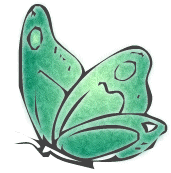Miles To Go
lundi, mars 02, 2009
Harmful Chemicals Found in Liquid Medicines for Babies
by Reuben Chow, citizen journalist
(NaturalNews) Newborns are not able to swallow pills and capsules, and liquid medicines are thus used to treat any medical problems they may have. And premature babies, being out in the world early, have a higher chance of being hit by various health complications and diseases. A study published in the Fetal & Neonatal Edition of Archives of Disease in Childhood has revealed that newborns who consume liquid medications may be exposed to dangerous toxins which are added to improve their effectiveness, taste and appearance. What is more worrying is that the babies' intake levels may be even higher than recommended adult guidelines.
Details of Study
For the study, the drug records of 38 premature babies admitted from June 2005 to July 2006 to a neonatal intensive care unit in England were looked at. The newborns had been born at or before the 30-week mark of pregnancy, and they all weighed below 1.5kg at birth. The researchers analyzed the type and ingredients of liquid medicines which had been given to these babies.
For a period of between 2.5 and 9 weeks, the newborns had undergone varying treatments, ranging from iron and vitamin drops to Furosemide and Dexamethasone.
Findings of Study
The study team found that the babies suffered regular exposure to 20 different types of excipients. Such chemicals are typically used to improve the administration, absorption or preservation of the active ingredients in the medicines. Excipients are also used to give the taste and look of the medicines a lift. They include antiadherents, binders, coatings, disintegrants, fillers or diluents, flavors, colors, glidants, lubricants, preservatives, sorbents and sweeteners, and these substances can potentially damage the nerves.
Ethanol (in iron and Furosemide), sorbitol (in Dexamethasone and iron), Ponceaau 4R (in iron) and propylene glycol (in Dexamethasone) were examples of excipients discovered in the medicines. According to the researchers, there is little information available on how safe specific excipients could be, especially in patients who are still so young.
Just how bad was the chemical exposure for the newborns? Ethanol exposure was found to range from 0.2 to 1.8 ml each week - that equates to about 1 to 7 units of alcohol, while sorbitol exposure ranged from 0.1 to 3.5g per kg per week. Guidelines for adults recommend that sorbitol intake should not exceed 20g per day. When reduced accordingly by weight, it was found that 18 babies were ingesting more than this amount for at least a week. Further, all the infants who took Dexamethasone went over the limit for propylene glycol, which is said to be two-thirds stronger than ethanol.
It was even worse for the seven kids who had gotten severe lung disease. Due to the more intensive treatment they had to undergo, they were exposed to even higher levels of excipients.
The UK Food Standards Agency has recommended that the colorant Ponceau 4R, which was found in the iron given to the newborns, be removed due to its possible negative effects on neurodevelopment.
Discussion and Conclusion
"This study documents a worldwide problem. It shows that the collection of medicines given to babies may ultimately lead to them being exposed to harmful chemicals with the potential for short and long-term toxic effects. Our research highlighted this, and we are planning further studies on the chemicals to understand exactly what these effects might be. What our study hasn't done is find any direct evidence on the cause and effect of these chemicals and the medical problems that these babies might be being treated for," said Hitesh Pandya, a Senior Lecturer in Child Health in the Department of Infection, Immunity and Inflammation at the University of Leicester, a Consultant Pediatrician at the University Hospitals of Leicester NHS Trust, as well as the leader of the study.
While more research is underway, this study has surfaced serious concerns. Information relating to the large array of chemical toxins which our young ones are assaulted with on a daily basis continues to accumulate. And it is very ironic that toxic substances are introduced to the body as part of formulations which are supposed to help deal with health issues. What's worse is that the little ones are exceptionally vulnerable. Is it, then, any wonder that our children nowadays are beset with unprecedented occurrences of all kinds of strange health conditions?
Let us hope that, at the very least, such important information will be made available to practitioners and consumers. Better still, current practices should be reviewed as soon as possible to avoid further poisoning of babies. As the study team concluded: "We feel it is important that the [medicines regulators] not only ensure that all manufacturers provide detailed labeling of the excipient content of their products but all lead action to determine whether existing practice constitutes a risk, and if so, how this might be dealt with."
Will this be done any time soon? Don't count on it. But parents, armed with this knowledge, can perhaps take better precautions.
Sources
Babies Exposed to Harmful Toxins in Liquid Medicines (http://www.emaxhealth.com/1020/50/2...)
Premature babies exposed to toxins in liquid medicines (http://www2.le.ac.uk/ebulletin/news...)
http://en.wikipedia.org/wiki/Excipient
Posted by Papillon ::
5:02 PM ::
0 Comments:


Post a Comment
---------------------------------------
 Name::Papillon
Name::Papillon